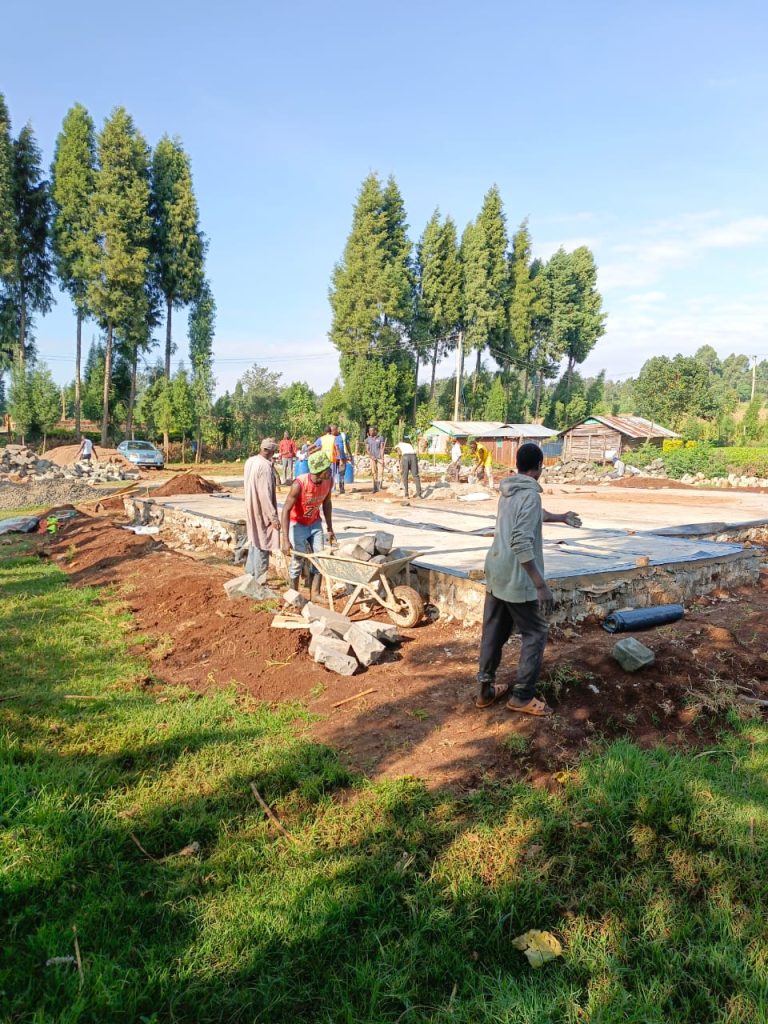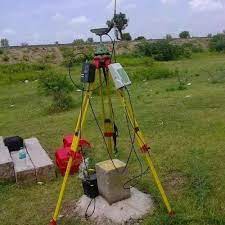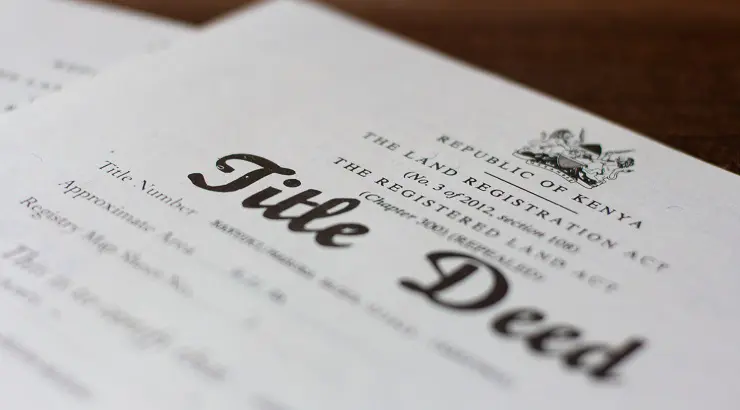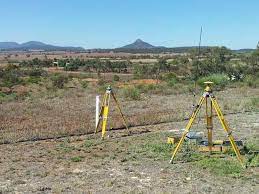Land Fraud in Kenya
A professional step-by-step guide on how to avoid land fraud in Kenya. Learn how to verify title deeds through Ardhisasa, spot fake documents, use escrow and conditional contracts, report fraud to DCI or NLC, and protect your investment when buying land locally or from abroad.
Introduction
Land fraud in Kenya remains one of the most serious risks for property buyers, investors, and diaspora Kenyans. Scammers exploit weaknesses in land registries, fake title deeds, and unverified agents to steal millions from unsuspecting people. This guide explains how to detect and avoid these land scams, verify title deeds, and structure transactions safely for complete protection.

Why Land Fraud in Kenya Keeps Happening (Root Causes)
Land fraud continues to thrive due to a combination of corruption, manual land records, and weak verification processes. In some counties, old registries are still used, creating loopholes where fraudsters duplicate or forge documents. Rapid urbanisation and rising land demand in Kenya also encourage speculative behaviour, giving scammers fertile ground to operate.
Registry Gaps and Corrupt Networks
Fraudsters often exploit outdated or manual registries, using corrupt insiders to forge ownership documents or manipulate records. When buyers skip due diligence, these fake title deeds can appear genuine until disputes arise during registration or transfer.

Market Pressure and Demand from Diaspora
With more Kenyans abroad investing in land, scammers prey on distance and trust. They offer cheap deals, insist on urgent payments, and promise quick transfers, knowing that diaspora buyers rarely verify documents physically. This market pressure fuels risky transactions and increased losses
Common Land Scam Types in Kenya
Kenya has several well-documented land scam patterns that every buyer should understand. Fraudsters use deception and legal loopholes to create confusion and take advantage of unsuspecting buyers. Recognising these scams is the first step to avoiding costly mistakes.
Fake Title Deeds and Forged Documents
This is the most common type of land scam in Kenya. Scammers print convincing fake titles with real parcel numbers, tricking buyers into believing they are genuine. Always confirm the deed’s authenticity through official government portals such as Ardhisasa or eCitizen before making any payment.

Double Allocation and Sale of Public Land
Some land parcels are allocated to multiple buyers due to manipulation at the registry. Others are illegally sold despite being public or county land. A land search and site visit are crucial to confirming ownership and verifying that the property is not under government restriction
How to Verify a Title Deed Before Payment
Every buyer must verify the title deed before paying any money. This process confirms the seller’s legitimacy and prevents fraud. Using both online and physical verification ensures you’re dealing with a genuine document.
Using Ardhisasa or eCitizen Platforms
Log in to Ardhisasa or eCitizen and run a land search by entering the parcel number. The system will show ownership details, title type, and whether any encumbrances or caveats exist. If results don’t match the seller’s details, stop the transaction immediately.
County Land Registry and Physical Check
Visit the local land registry to cross-check information. Request a certified copy of the parcel file and confirm ownership with the land officer. Comparing both digital and manual records helps reveal inconsistencies early
Visual and Document Red Flags — How to Spot a Fake Title Deed
Learning to identify a fake title deed is critical in avoiding scams. Fraudsters often overlook small design or format details that can expose forgeries.
Physical Signs of Forgery
Fake titles may have uneven printing, mismatched fonts, or missing watermarks. Some documents show blurred stamps or poorly aligned signatures. Always compare the document with a genuine sample from the registry.
Inconsistent Parcel Numbers and Altered Entries
A fake deed might contain parcel numbers that don’t match the land search results. Some forgeries also have altered issuance dates or handwritten corrections — both are red flags of manipulation
Due Diligence Checklist for Buyers in Kenya
Proper due diligence prevents most land fraud cases. It ensures that all documents are legitimate and the seller has the legal right to sell.
Essential Documents to Request
Ask for the original title deed, the seller’s ID and PIN, the land rates clearance certificate, survey map, and land control board consent where necessary. If the seller is a company, demand the company registration and board resolution authorising the sale.
Professional Verification Steps
Hire a conveyancing lawyer to verify ownership, and engage a licensed surveyor to confirm boundaries and physical land location. Cross-check the title with NLC or the Ministry of Lands to detect disputes or pending allocations.
Land Fraud in Kenya
Transaction Safeguards When Buying Land
Protecting your money during a land transaction is essential. Secure payment methods and verified agreements help avoid financial loss.
Using Escrow or Trust Accounts
Always pay through a lawyer’s escrow account or a licensed trustee. The money is only released after a successful title transfer. This provides accountability and ensures both parties meet their obligations.
Conditional Contracts and Retention Clauses
Include clauses that allow payment in stages based on progress, such as upon registration or title verification. Retain a portion of the payment until all documents are officially transferred.
Remote and Diaspora Land Purchases in Kenya
Buying land from abroad requires additional caution. Scammers target diaspora Kenyans by exploiting distance and limited local knowledge.
Power of Attorney and Representation
Appoint a trusted relative or professional as your Power of Attorney (POA). The POA document should specify exact powers and be registered at the High Court to prevent misuse.
Verification and Remote Site Checks
Request live video calls during site visits and demand digital copies of all documents. Use reputable agents and avoid anyone who refuses transparent communication
Legal Remedies and Reporting Land Fraud
If you suspect fraud, take immediate legal action. Acting quickly can prevent loss and preserve your ownership rights.
Reporting Fraud to Authorities
File a complaint with the Directorate of Criminal Investigations (DCI) and notify the National Land Commission (NLC). Submit evidence such as payment receipts, communication records, and the disputed title deed.
Lodging Caveats and Seeking Court Orders
Request a caveat at the Lands Registry to prevent transfer. Your lawyer can also apply for an injunction to stop fraudulent registration or sale until the case is resolved
Costs and Timeline for a Secure Land Purchase
Knowing the costs helps you plan effectively. A legitimate process may take more time but guarantees safety.
Typical Costs
Budget for title searches (KES 500–1,000), lawyer fees (1–2% of land value), surveyor fees (KES 20,000–50,000), and registration costs. Online verification through Ardhisasa may include small transaction fees.
Expected Timeline
A standard transaction takes 2–6 weeks depending on verification speed and document accuracy. Always allow extra time for registry checks to avoid rushed decisions.
Real Case Examples and Lessons Learned
Case studies highlight the importance of caution and professional help when buying land.
Case Example: Fake Title Detected Early
A Nairobi buyer discovered a fake title during Ardhisasa verification. Because he used an escrow account, his funds were safe and the scammer was later arrested.
Case Example: Fraud After Payment
Another buyer paid directly to a seller who vanished after receiving money. The buyer couldn’t recover the full amount since no escrow or contract protection existed
Conclusion — Land Fraud in Kenya
Land fraud in Kenya can be prevented with thorough verification, the use of escrow, and professional guidance. Always confirm documents through Ardhisasa, engage a licensed lawyer, and never rush a purchase. Secure land transactions protect your investment and future ownership.



